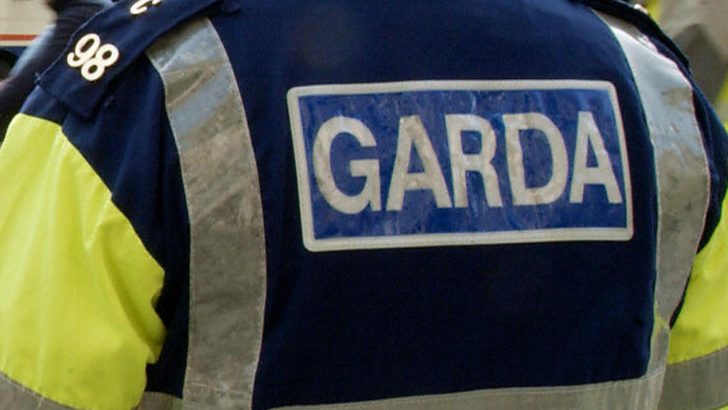As I sat down to write this I was very pleased to learn that Frances Fitzgerald, the Tánaiste and Minister for Justice, is asking for a “root and branch review” of An Garda Síochána, for a Patten-style international commission to examine Irish policing, as Lord Chris Patten and his Independent Commission provided a blueprint for the future of policing in Northern Ireland, a blueprint which has stood the test of time and which has informed the development of policing across the world.
It is definitely time for such a review. The various scandals which have beset An Garda Síochána over the years, which have led to so many allegations of partial policing, corrupt policing and failed policing, culminated in the last few weeks in a series of reports of very serious financial irregularities at the Garda College, of gross over reporting of roadside breath tests and of deplorable prosecutions of people who should never have been before the courts.
Shock
There can be no doubt that a letter from a court summonsing you to appear will always come as a shock to the recipient. For 147,000 people in Ireland such letters were a reality. The problem was that they had paid whatever speeding fine, or charge that had been imposed for failing to display ‘L’ plates on a vehicle, or not displaying a tax or insurance disc. So can you imagine what that felt like?
These cases must have led to people incurring legal costs, suffering stress (nobody wants to be before a court), having to take time off work to explain to a judge that they had paid the fine. What of those who could not prove they had paid – who had lost or disposed of the relevant documentation? What too of the burden on the already overburdened court system, required to process an additional 147,000 cases. What delays did that lead to for others engaged with the court system?
The problem did not stop there however. In 14,700 cases people were convicted of failing to pay a fine which they had paid. An Garda Síochána have not yet told us the outcome of those cases, but it is surely inevitable that the penalty in court was greater than the fine originally imposed.
Now An Garda Síochána are writing to all these people to tell them that the Garda will apply to have the convictions set aside.
There are many problems with this for people. They had to find the money to pay the additional costs and penalty, money which can be very hard to find. They may have suffered additional penalty points on their driving licences which in the most extreme of cases may have led to the loss of a licence – leaving someone unable to get to work or take children to school, attend medical appointments, get to church and do all the other things which are part of daily life. They may have suffered other problems. What does this do to confidence in policing?
An Garda Síochána were alerted to the problem by a whistle-blower in 2014. So in 2015 they conducted some internal audits of the Fixed Charge Penalty Processing system. They found a high standard of compliance with legislation and procedures. The problem continued. The 937,000 roadside breath tests which never took place must have informed Garda planning and resource allocations for years. They must have worked on the basis that officers were needed to conduct such a significant number of operations and allocated those resources accordingly.
The Garda Commissioner Nóirín O’Sullivan has said that she does not think that the over-reporting of statistics is confined to mandatory alcohol testing. She would not say this lightly at such a time. There are suggestions of irregularities in other areas too. I spent a bit of time looking at the Garda website, and there may well be many other problems which will go ultimately to more questions about to what extent can people have confidence in their police? I see for example a reference on the website to audits of property and evidence management, and to problems there.
Property
Property and evidence management is one of the most important areas of policing. There is no point in gathering evidence and retrieving property for the purposes of criminal investigation, if it is not handled in a way which enables the Gardaí to show that they can account for every movement of that property, and that in the case of evidence there can be no possibility that evidence may have been tampered with, lost or fabricated. It is upon the integrity of the evidence presented to a court that decisions will be made about people’s lives and liberty.
So I welcome the announcement of the request for a “root and branch review”. I have no doubt it will be granted. It will be important, however, to ensure that all areas of policing are examined. The reports refer to reviews of structure, management levels, recruitment and training, culture and ethos, oversight and accountability. If this commission is to have credibility it must have the power to inquire fully into all these areas, including the matters about which brave whistle-blowers have reported irregularities, including the treatment of whistle-blowers, and the management of crime and security, with all that that entails. National security is not best protected by failing to examine the practices and policies of those charged with its protection.
What has happened in An Garda Síochána is not unique. There is a pattern in policing of the need to protect the institution against allegations of wrongdoing, lest the powers of police officers be circumscribed by what is actually proper accountability, or confidence in policing is diminished by the exposure of the truth. In policing they call it the ‘blue wall’ – the invisible wall which surrounds and protects those charged with the protection of our peace and security against investigation and review. The blue wall is as old as policing itself. It is in the nature of any institution to protect its own and its power. When management fails, when officers cannot report perceived wrongdoing in the confidence that it will be dealt with, and that they will not become the target of those who should be investigating the alleged wrongdoing, those behind the blue wall feel very safe.
The people of Ireland have the right to proper policing according to the rule of law. We know that Jesus said “if you believe in my word, you will come to know the truth and the truth will set you free”. Truth is what is needed at this time, truth and the courage to face and proclaim reality, so that, after so many false starts, Irish policing will be reformed and the brave officers who join policing to protect life and property will be able to do their job with confidence, skill and most vitally that full community support, without which policing is impossible.


 Nuala O’Loan
Nuala O’Loan
